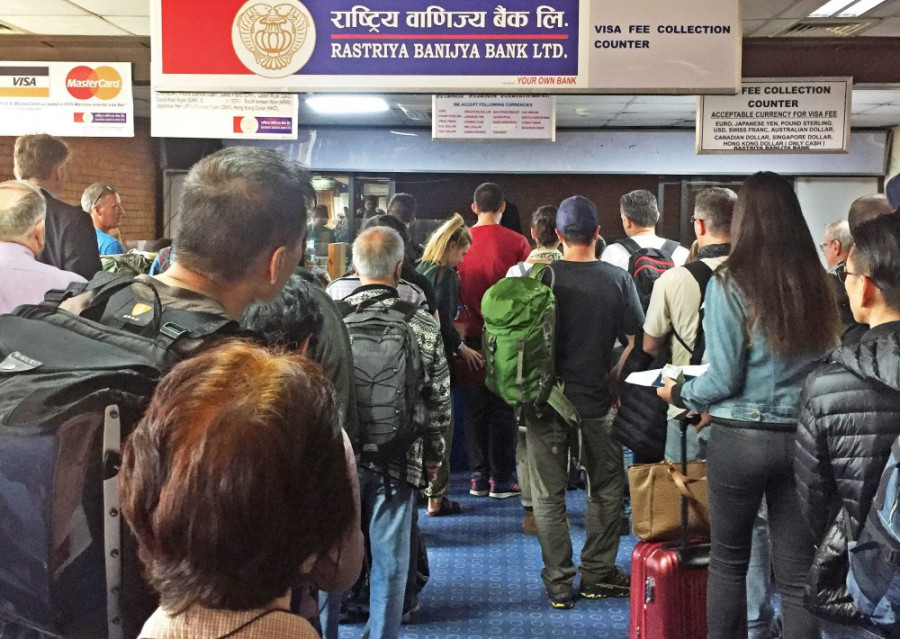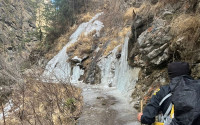National
TIA health desk without staff ahead of Visit Nepal 2020
Health experts warn of possible transmission of deadly diseases
Arjun Poudel
The health desk at the Tribhuvan International Airport is without staff ahead of the Visit Nepal 2020 campaign, which has set a target of welcoming two million visitors to the country.
Screening of unknown diseases on incoming passengers has come to a halt for the last several months, as all staff working at the airport’s health desk have been transferred elsewhere as part of the government’s staff adjustment process.
“Since there are no health workers at the health desk, incoming passengers are not being screened for possible diseases," Dr Bibek Kumar Lal, director at the Epidemiology and Disease Control Division—the agency responsible for running the health desk—told the Post.
The Ministry of Culture, Tourism and Civil Aviation is preparing to spend over Rs 53 million for the inauguration ceremony of the tourism campaign, but it has failed to appoint staff at the airport’s health desk.
Lal said his office had repeatedly asked the concerned agencies to fill the vacancies at the health desk, but to no avail.
Health Secretary Khagaraj Baral had planned a meeting on Monday to discuss the health preparedness for Visit Nepal 2020, but the meeting was postponed at the last hour.
"A tourist in 2014 brought in dengue virus for the first time in the country," Lal said. "We are vulnerable to so many deadly diseases due to the frequent movement of international passengers."
Likewise, the country is highly vulnerable to several other deadly viruses—SARS coronavirus, Middle Eastern Respiratory Syndrome and others, as a lot of Nepalese migrant workers have been serving in the Middle East and South Korea, where these infections are common.
Moreover, hundreds of peacekeepers from the Nepal Army, Armed Police Force and Nepal Police have been serving in the African countries affected by the deadly Ebola virus. Those peacekeepers have been entering the country without any health screening for a long time.
The division also said that none of the health desks at the eight international land crossings are functional due to a crunch of budget and human resources.
The World Health Organization says high traffic can play a crucial role in the spread of deadly diseases internationally.
Health experts say the closure of the only functioning health desk at the country’s sole international airport, which receives around 10,000 international passengers daily, is a dangerous thing.
"This is a very unfortunate thing," Dr Baburam Marasini, a public health expert, told the Post. "This could bring huge consequences, like an international blockade, in case of an outbreak of diseases."
Setting up health desks at international entry points—international airports and overland crossings— is the responsibility of the government, as Nepal is a member state of the International Health Regulation, and has committed to responding and preventing public health risk.
Setting up health desks and strengthening them with equipment and trained human resources are parts of the commitment.
"Instead of strengthening the health desks, the government let them shut down," he said. "What can be more unfortunate than this."




 22.12°C Kathmandu
22.12°C Kathmandu













